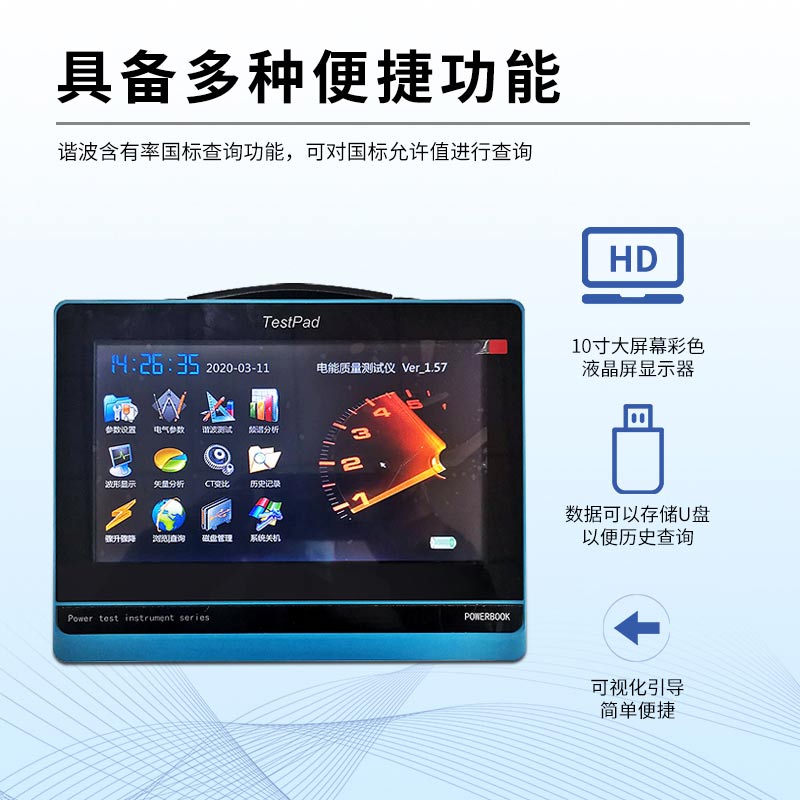Shandong Fengtu IOT Technology Co., Ltd
Sales Manager:Ms. Emily Wang
Cel,Whatsapp,Wechat:+86 15898932201
Email:info@fengtutec.com
Add:No. 155 Optoelectronic Industry Accelerator, Gaoxin District, Weifang, Shandong, China

Sales Manager:Ms. Emily Wang
Cel,Whatsapp,Wechat:+86 15898932201
Email:info@fengtutec.com
Add:No. 155 Optoelectronic Industry Accelerator, Gaoxin District, Weifang, Shandong, China
time:2025-03-24 09:37:28 source:Weather Station viewed:591 time
Photovoltaic IV curve testing is a crucial means to evaluate the electrical performance of photovoltaic modules/strings, and the Portable IV Curve Tester is an important tool to achieve this testing.
The Portable IV Curve Tester is specifically used to measure the current - voltage relationship of photovoltaic modules/strings in actual outdoor environments. It enables us to obtain key parameters of photovoltaic modules under different lighting and temperature conditions, such as open - circuit voltage (Voc), short - circuit current (Isc), maximum power point operating voltage (Vmp), maximum power point operating current (Imp), maximum power (Pmax), and fill factor (FF). These parameters can intuitively reflect the power - generation capacity of photovoltaic modules/strings, their adaptability and stability under different environments, and are the key basis for judging the quality of photovoltaic modules/strings.
Working Principle of the Portable IV Curve Tester
The working principle of the Portable IV Curve Tester is based on the photoelectric effect and circuit analysis. During the testing process, the tester first ensures the correct connection between the solar cell module and the testing equipment, and collects the irradiance intensity received by the module and the back - sheet temperature through a standard cell and a temperature sensor. Subsequently, the tester places the solar cell module in an open - circuit state and measures its open - circuit voltage (Voc). Then, the tester starts the voltage - scanning process, gradually increasing the operating voltage of the solar cell module from 0V and simultaneously measuring the corresponding output current. Finally, the tester plots these voltage and current data points into an IV curve.
In the operation of a photovoltaic power station, due to environmental factors, equipment aging, or human operational errors, photovoltaic modules/strings may experience failures or performance degradation. Through the Portable IV Curve Tester, maintenance personnel can promptly detect abnormalities, accurately locate the causes of failures, and quickly identify the failure points. This helps maintenance personnel take timely repair measures, reduce system downtime, and improve the operating efficiency and stability of the power station.
Advantages of the Portable IV Curve Tester
It has high - precision voltage and current measurement capabilities, ensuring the accuracy of test results.
It is designed for outdoor use and can operate stably under different lighting and temperature conditions.
Most Portable IV Curve Testers are designed to be lightweight, easy to carry and operate, and suitable for on - site use in photovoltaic power stations.
It has data storage and analysis functions, capable of recording test data and generating detailed test reports.

Buoy-type automatic water quality monitoring station, is a water quality monitor as the center, the use of sensor technology will be the buoy body, power supply system and data transmission equipment combined and constitute a small water quality monitoring system placed in the water.Buoy intelligent...
Automatic weather station is a modern means of meteorological observation using IOT sensor technology as well as wireless transmission technology to collect, process and analyze meteorological elements, which is of great importance in social production. Due to its small size, low power consumption a...
As industries such as transport, aviation and navigation continue to develop, weather phenomena such as atmospheric pollution and haze have become important factors in limiting the development of these industries. In this context, there is increasing interest in the use of visibility monitoring inst...
During all stages from the production to the usage of photovoltaic modules, various defects in solar cells may occur, such as broken grid lines, leakage, black heart wafers, missing corners, cracked wafers, poor soldering, short circuits, etc. These defects are difficult to detect with the naked eye...